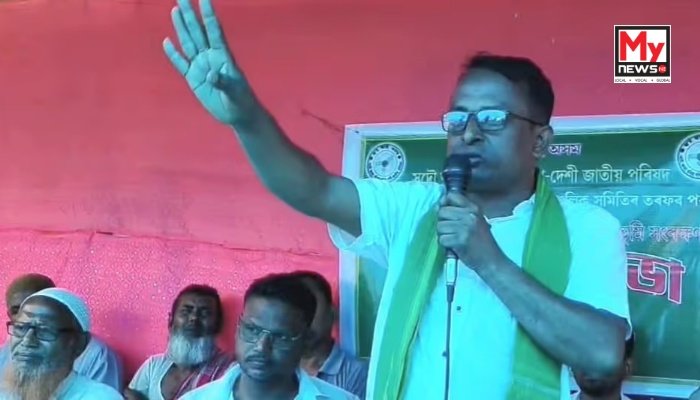Assam: Eviction Fears Mount in Dhubri’s Alomganj as Thousands Face Uncertain Future Amid Land Acquisition Drive
Dhubri, Assam — Tensions are rising in Alomganj as thousands of residents brace for a looming eviction drive that could displace entire communities. Nearly 4,000 bighas of land are at the centre of the controversy, with approximately 2,200 bighas identified as government khas land and another 900 bighas reportedly held under legal patta deeds.
The proposed acquisition is part of the state government’s “Advantage Assam 2.0” initiative, aimed at attracting investments and developing strategic zones. However, the move has triggered widespread anxiety and resistance among locals who fear the loss of their homes, ancestral land, and cultural identity.
Top district officials, including the Dhubri District Commissioner and Additional Commissioner, visited the area on Wednesday to consult with landholders and discuss acquisition plans. But opposition is intensifying.
A meeting held at Chitalkatti on Thursday by the Garia Maria Desi Jatiya Parishad resulted in a firm resolution to resist the eviction. “The land of all the sons of the soil and pattadars will never be given up,” the resolution stated. The group represents the indigenous Deshi community, which has deep historical roots in the Panbari and Alomganj areas.
District president of the Parishad, Afzalur Rahman, voiced the growing frustration. “We don’t mind if khas land is taken for development. But targeting villages of indigenous Deshi people—those with legal pattas and ancestral bheta lands—is unacceptable.”
The situation is further complicated by growing divisions among pattadars themselves. Some are unwilling to give up their land under any circumstance, while others, under pressure or uncertain of alternatives, are reportedly being persuaded to concede.
Also at risk are thousands of landless families who have lived for generations on government land. Without legal ownership, they now face eviction without clarity on resettlement or rehabilitation, deepening the humanitarian concern.
The standoff has sparked a broader debate on the balance between development and displacement. With identity and livelihood deeply intertwined with land ownership, the proposed drive is being viewed as a challenge not just to property rights, but to the socio-cultural fabric of the region.
Community leaders and government officials are expected to hold further discussions in the coming days as calls grow louder for a transparent, just, and inclusive resolution.

